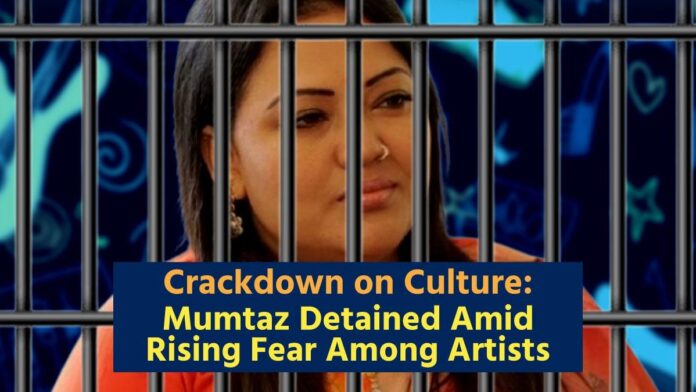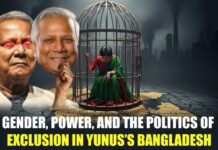It was a deep night. The city was asleep. But the invaders were awake. They came on a mission to silence a voice.
They broke down the door of a small house behind Dhanmondi— and like vicious vultures, they dragged away Mumtaz—
the queen of folk songs in this country, a daughter of Bengal, the voice of the fields and the people.
They are calling it an “arrest”!
But everyone knows—this is just a new name for a staged hunt. This government, this monstrous state, now fears artists.
They know—
the power of a single song,
a single voice,
a single word—
can be as mighty as a bomb.
Mumtaz was that power.
In her songs lived the dust of the land, the hardship of the people, a mother’s face, love, anger— and they couldn’t bear that.
They want artists to remain silent.
They want culture to become nothing but praise for the powerful.
They want Mumtaz’s voice to be pre-recorded, edited, approved.
But you didn’t agree, Mumtaz!
And so—they became afraid.
They know—
if they don’t silence Mumtaz,
the villages will sing,
the cities will sing,
the workers will sing,
the women will sing.
And that song, that roar, that cry—
will eventually pour into the streets.
So they have begun. They are picking off each voice, one by one. Today it’s you. Tomorrow, it might be me.
What they did while looking straight into your eyes has carved a permanent scar into our hearts.
It is a scar of insult, of fury, of vengeance. They think people will forget?
No. The soil knows, the wind knows— Mumtaz’s voice will return one day.
It will rise again and shake the earth.
If we stay silent now, if we do not stand with Mumtaz—then one day, no one will stand for us either.
Then they’ll break down our doors, and silence our voices too.




